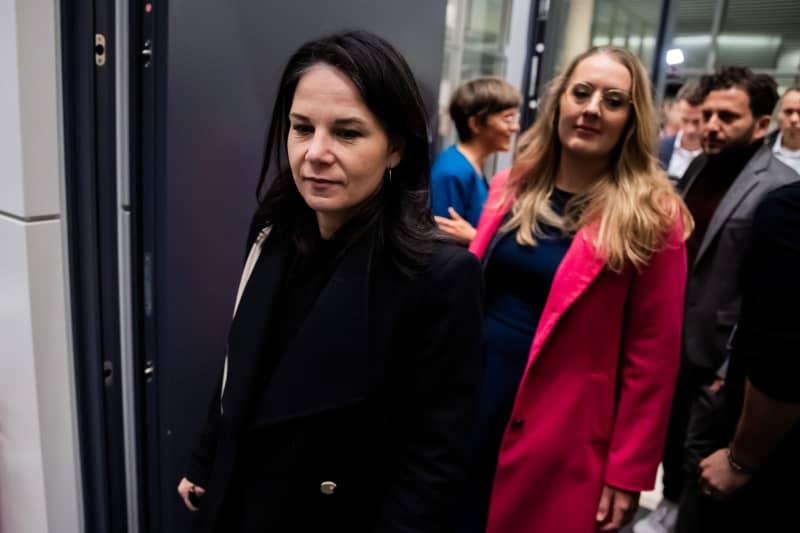The recent collapse of Chancellor Olaf Scholz’s coalition government has prompted significant concern among political leaders in Germany. Annalena Baerbock, the Foreign Minister and a member of the Green Party, publicly expressed her dismay outside the Chancellery in Berlin, highlighting that the day marked a troubling turn for both Germany and Europe as a whole. Baerbock emphasized that, particularly in light of ongoing geopolitical tensions, especially regarding the war in Ukraine, Europe carries a crucial responsibility in maintaining peace and supporting nations affected by conflict. The implications of a fractured government could hinder Germany’s diplomatic and financial responses to these challenges.
In her statements, Baerbock pointed to urgent domestic issues stemming from the fallout of the coalition’s collapse. Among these is the need for Germany to consider adjustments to its fiscal policies, particularly the “debt brake,” a constitutional rule designed to restrict public borrowing. The debt brake has been a cornerstone of Germany’s fiscal policy aimed at ensuring financial stability, but in the context of the war in Ukraine and its broader effects on the economy, Baerbock argued that making an exception has now become imperative. The Greens, her party, have been advocating for this flexibility within the coalition framework, but disagreements have prevented a consensus from being reached.
The recent crisis also reflects internal discord within the coalition government, notably after the dismissal of Federal Finance Minister Christian Lindner by Chancellor Scholz. Lindner’s exit signifies not just a shakeup in leadership but also a deepening rift among coalition partners. Baerbock’s comments post-dismissal underline a critical juncture for the Green Party, which is contending with its influence within the coalition and the urgency of responding to both domestic governance and international crises. This situation raises questions about the future alignment of political priorities among the coalition parties, particularly as they navigate these pressing issues.
The war in Ukraine continues to have wide-ranging repercussions beyond traditional defense strategies; it directly influences fiscal policy, energy supplies, and international relations. Baerbock’s insistence on the need for an adaptation of fiscal rules underlines an emerging acknowledgment that fiscal rigidity may no longer serve Germany’s interests in a rapidly changing geopolitical landscape. The implications of the conflict demand not only a re-evaluation of existing policies but also a collaborative approach among European nations, emphasizing solidarity and shared responsibility in addressing the crisis.
In the context of broader European unity, Baerbock’s remarks carry weight as they highlight the interconnectedness of national policies and international security dynamics. The German government’s responses to the socio-economic outcomes of the Ukraine conflict must align with European strategies to ensure a cohesive approach. As other European nations grapple with similar challenges, the need for consistent and unified action becomes even more critical. The willingness or ability of Germany’s leaders to come together—especially in light of political instability—will significantly impact both national and regional efforts.
Looking ahead, the challenges facing Germany and Europe are multifaceted and complex. The ability of political leaders to navigate these difficulties in the wake of the coalition’s collapse will determine the efficacy of responses to the pressing needs of the moment. Annalena Baerbock’s advocacy for fiscal flexibility in the context of the Ukraine crisis is emblematic of a larger struggle within the German political landscape, where competing priorities must be balanced with the imperatives of global governance, security, and economic resilience. Ultimately, a cohesive and adaptive political response will be essential for both Germany’s recovery and its leadership role in Europe during these turbulent times.

